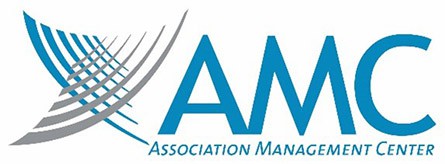Do you spend way too much time reading posts about interview questions? If that’s the case, please take my virtual hand so we can walk away from that darkness.
After all, do any of us believe that if the latest “unexpected interview questions” are revealed, we’ll find interview happiness in its purest form? If we only knew “the one question to ask”, we’ll find that elusive success we’ve been longing for?
This brings me to Brad Pitt. In the movie “Moneyball,” his character confronts a head of baseball scouting who is ineffective at identifying top talent.
Playing Oakland A’s Executive Vice President Billy Beane, Pitt tells the scout:
“You don’t have a crystal ball. You can’t look at a kid and predict his future any more than I can. I’ve sat at those kitchen tables with you and listened to you tell those parents, ‘I know. I know. When it comes to your son, I know.’ And you don’t. You don’t.”
That’s how I feel about interview questions. Sure, I might be able to increase my chances a bit by asking good questions, but at the end of the day, I really don’t know if I’ve made a winning hire until my new employee has been on the job for a while—I just don’t, and there’s a fairly long list of hiring mistakes I’ve made that speaks to this.
Think about it. If it were as simple as asking the right questions, we’d all be experts at recruiting only the highest quality candidates.
And guess what? If I can read endless posts about interview questions, so can the candidates. As a result, they’ll arrive armed with the perfect response to “What are your most proud of in your career?” Then, the only thing I’ll know about them is that they know how to use Google.
So, what’s the answer? It’s a four-parter, actually.
 I’m going to worry less about the perfect questions so I can concentrate on real conversations and connections. How?
I’m going to worry less about the perfect questions so I can concentrate on real conversations and connections. How?
- I’m going to talk to the person I’m interviewing as if I really wanted to get to know them—because I do!
- I’m going to try to foster a conversation that encourages them to get to know me as well, because they are interviewing me, the department, and the business to see if they want to work here.
- And I’m going to hire for potential, promise, and talent instead of focusing on whether the candidate checks experience box A and education box B or has the perfect answer to a ”tough” question like “If your life were a movie, would it be better than the book?”
If I do these four things right, I increase my chances of getting the right person for the job, someone who is as confident in my hiring decision as I am.
Some employers don’t prioritize hiring based on potential and promise. Those aren’t the kinds of things you can just check off on a form to show that a candidate is qualified.
Outdated methods might result in hiring an employee who can do the job as it exists today, but jobs change as rapidly as the workplace, marketplace, and world do. You can’t determine whether candidates will thrive amid change or embrace an evolving role unless you get to know them—not just their education, experience, or canned answers to interview questions.
When I get to know candidates during a job interview, I’m better positioned to judge their ability to adapt to changing roles. An employee who can thrive amid change is more likely to be satisfied and stay longer, a nice added benefit for both of us.
If you’ve been holding my virtual hand this whole time, thank you. You can let go now. Really. Just don’t use that hand to click on any articles titled “The One Interview Question You Really Need to Know.”
Note: A huge thank-you to Julie Rogers, Senior Content Marketing and Editorial Manager on the creative team, for her contribution to this post.
Be the first to know about the latest news and events from AMC. Sign up for our bimonthly emails!

